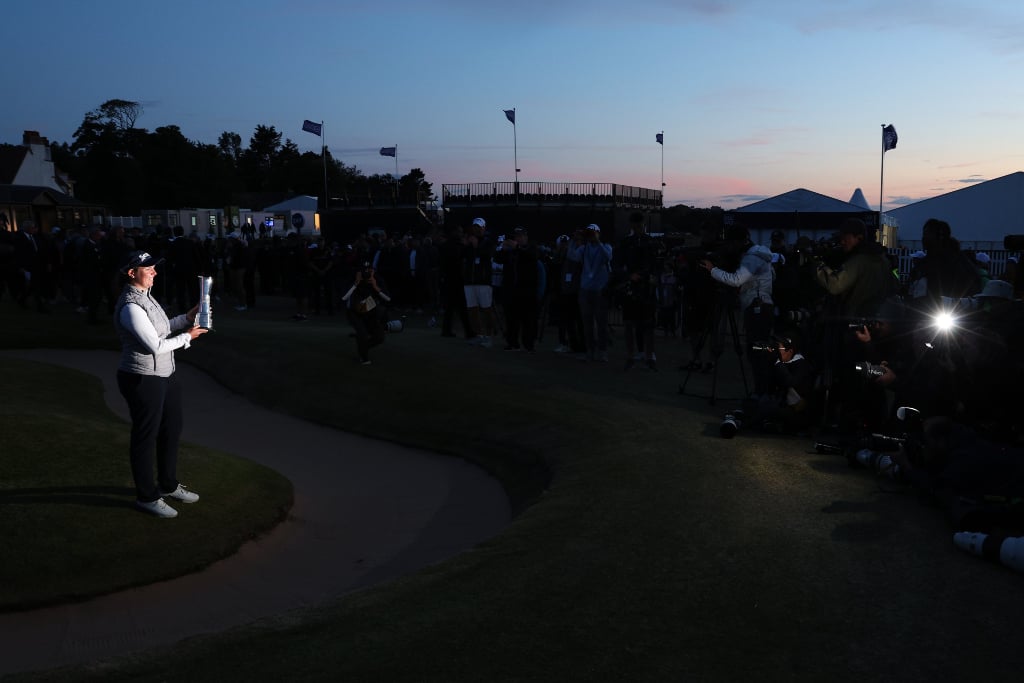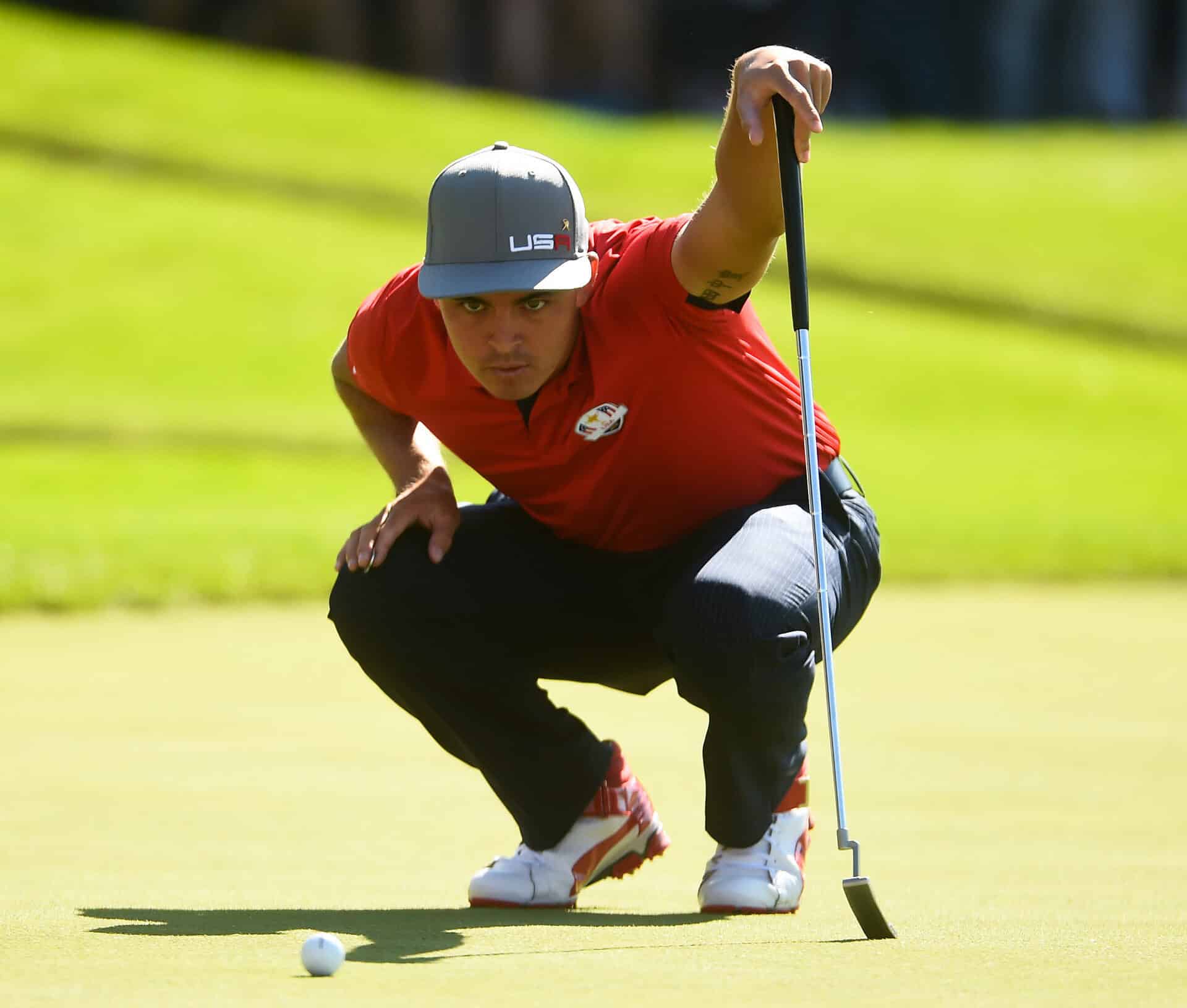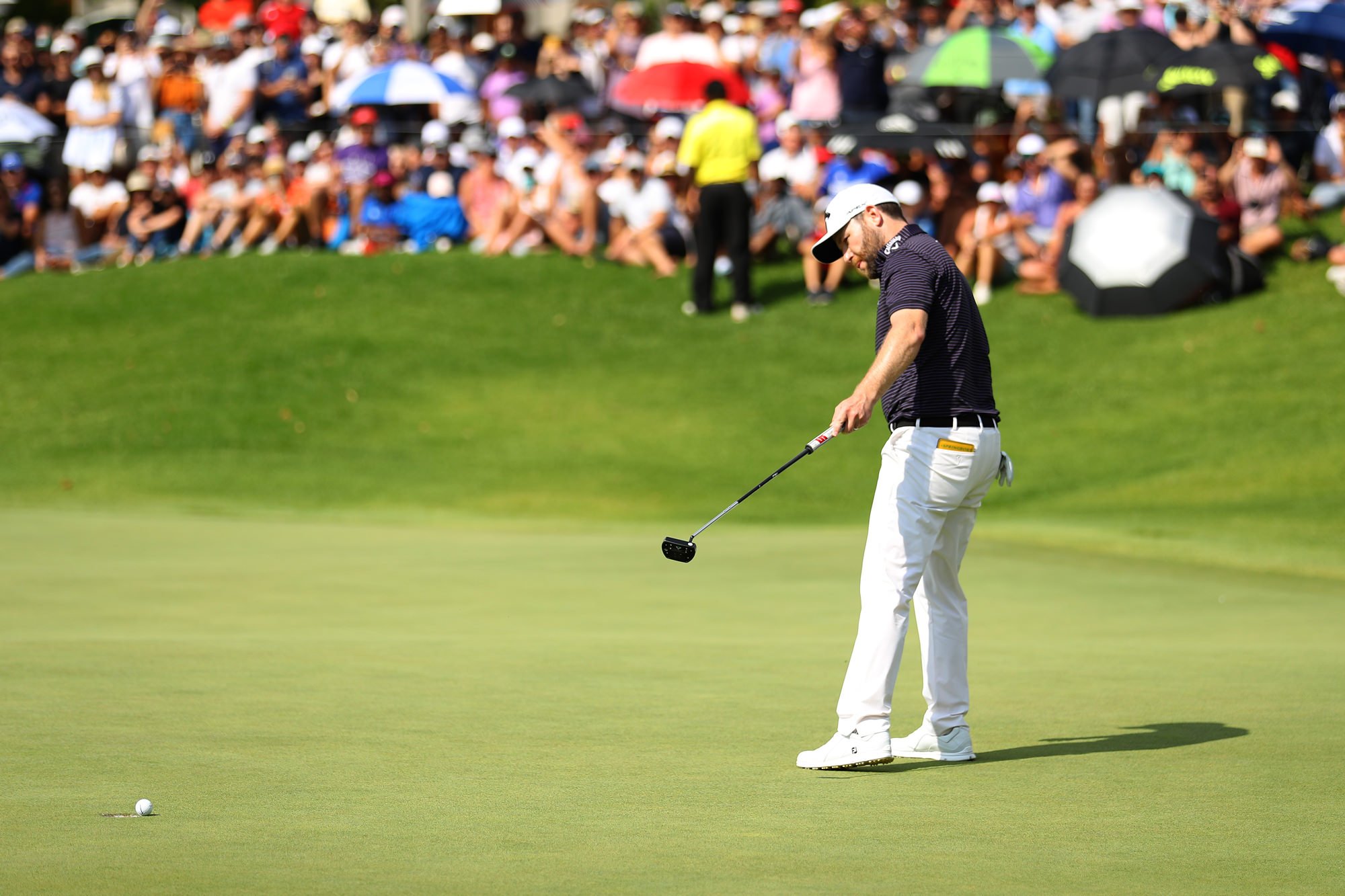
‘Bad golf shots are always blamed on the swing’: How working on your mental focus can improve your game
So much of golf is played in the head, so what can we, as club players, learn from performances such as that of Ashleigh Buhai at the AIG Women’s Open? We chatted to her mental coach Duncan McCarthy
It has felt something of a taboo subject until recently, but golf and mental health has never been more in the spotlight.
- RELATED: Is scratch golf as unachievable as we think?
- RELATED: 5 stupid mistakes golfers make when chipping
We’ve already lost count of the number of players breaking down in post-victory speeches, raw emotion on display to the world as, often, a lifetime of work comes to fruition.
Ashleigh Buhai, following her wonderful victory in the 2022 AIG Women’s Open, was more to the point.
“I started working with the sports psychologist Duncan McCarthy in February this year,” she explained in her victory speech on the 18th green at Muirfield. “If you told me then that I would be sitting here I would never have believed you with the mental state I was in.”

Remarkable honesty that we so rarely see from such high-profile stars following a tournament that saw her squander a five-shot lead before winning in a lengthy sudden-death playoff.
So we asked the man Buhai credited in her speech how he helped change her mindset and forge a major champion. But first, what did the win mean to him?
“I shed a fair few tears because it means a lot working with people trying to fulfil their potential,” he says. “Ash rang me after she had done all her media commitments and she was just waving the trophy and saying, ‘Look what we won!’ It was a bit of a blur. I said, “I bet [husband] Dave is buzzing!” She replied, “Yeah, he’s had a fair few sherbets by now!'”
He continues: “I always talk about people as the performer and the person, and when Ash and I started working together, the person had been struggling with quite a few things. It was important to do some work on that and get her into a good place again.
“She’s one of those who just listens really well, she digests what we’re working on, and she puts it in play. She doesn’t let anything get in the way of that. We’ve done some great work this year. She’s a pleasure to work with.
“When you get into the back nine and you get closer to the finish line, you’re obviously hitting good golf shots – so technically you’re in a good place. Physically you’re in a good place. So then for me, it becomes a mental game.
“No golf tournament – especially a major – is easy to win, and you’re always going to face a challenge. You never know when your boat’s going to get rocked. You have to be aware that when that comes that’s the moment you shine.
“It’s not about controlling things that are going on with other players, or the leaderboard, it’s about controlling yourself and understanding you can only control your actions, your reactions, and your attitude when your boat gets rocked – like it did with Ash when she had that triple-bogey on 15.
“I was watching it unfold and, like everyone else, I was sat there going, ‘No! What’s she doing? What’s going on?’ But I was also thinking, ‘OK, just take a breath, bring it back, remind yourself of the stuff that we’ve done.’
“The shot she then hit on the par-3 16th was phenomenal. How she responded for me was absolutely critical. It’s just in that moment, not going with the emotion of the situation, but coming back to the logic of what we’ve worked on over and over. If that’s her one blip, that’s what it is. She stood strong with the next shot which showed me she’s willing to stand up here. She’s got the strength inside.
“Watching her on TV was interesting. The commentators were saying she looked nervous and I’m thinking, ‘No, she doesn’t.’ That face she pulls when she bites her bottom lip means she’s focused, I’ve seen it many times, so knowing she was taking control of herself through tiny little things like that, it was always going to be good from then on.”
So what can we, as club players, learn from Buhai’s victory and bring it to our own games?
“Everything can be developed – including mental strength,” Duncan explains. “We get good at what we do regularly.
“Someone like Ash, they’ve learned it. No doubt about it. The desire, the motivation, that’s something that’s built in – the desire to keep going on your journey even when things get ugly.
“It is something you can work on, but it’s an individual thing that resides inside you. In terms of all the other skills around that, absolutely it can be learned.
“Look at any performance, especially in golf, and you can break it down to three areas: physical, technical, and mental. One or two of those could be struggling, but you can always have a quality mental performance, and that’s what we try and pride ourselves on.
“It’s fashionable to work on your swing. If you hit a bad shot, it’s always referred to as a poor golf swing. But it could have been a lack of engagement, or a poor course management decision. You could have been distracted, or in a bad place mentally, or you might be injured physically, but it always comes back to technical because that’s what gives you the result of the shot.
“With high-performance golfers, they know that when they stand on a range, the difference between ball striking is very minimal, so the difference has to reside somewhere else. The rest of it is for me is between in your head.
“Make sure you pride yourself on quality decisions. Don’t play the shot you think you can play, play the shot you know you can play. Smart golf over safe golf. Safe golf isn’t going to win golf tournaments, but smart golf is.
“A swing coach will tell you the same. It’s not the work you do with the coach, it’s the work you do in-between. It’s exactly the same with mental strength.”
- RELATED: Here’s how I practice as a +2 handicap golfer
- RELATED: What does a player do in a practice round at The Open Championship
- RELATED: I play golf with a major champion!
More on golf and mental health
Duncan McCarthy was talking to NCG on The Slam podcast. You can listen click here to open in your preferred podcast player.
Duncan is the performance director for Underpin Sports. You can learn more about what they do on their website.

Alex Perry

Alex has been the editor of National Club Golfer since 2017. A Devonian who enjoys wittering on about his south west roots, Alex moved north to join NCG after more than a decade in London, the last five of which were with ESPN. Away from golf, Alex follows Torquay United and spends too much time playing his PlayStation or his guitar and not enough time practising his short game.









